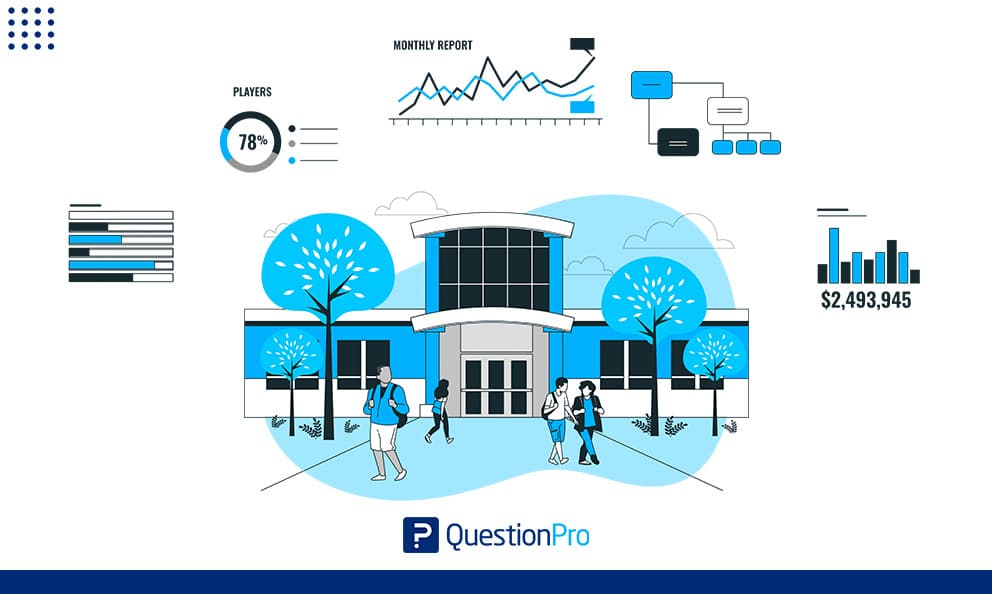
It is no secret that researchers, educators, and institutions often face obstacles restraining their ability to manage projects, collaborate, and produce high-quality work. The solution to many of these challenges lies in implementing academic research tools to simplify the research process and elevate the quality of outcomes.
What are Academic Research Tools?
An academic research tool is a software or a platform that helps researchers organize, analyze, and manage the components of their research projects. Some examples include reference management software, data visualization software, and survey design tools. These tools are designed to support the stages of the research process, from literature review and data collection to data analysis and publication.
Reference management software allows researchers to organize and manage their references and citations. This can be particularly helpful for large literature reviews, enabling researchers to easily search and access their reference library and format citations and bibliographies in different styles.
Many reference management tools offer features like annotation and collaboration, so researchers can share their reference libraries with colleagues and work on them together.
Data visualization software can help researchers to explore and understand their data. These tools allow researchers to create interactive visualizations from their data. This can be very useful for identifying patterns and trends that might not be immediately apparent from raw data. These tools also provide a way to communicate the findings from their research clearly and effectively, as visualizations can be more easily understood than raw data.
Data collection software is another essential tool that can support the research process. This software can design and administer surveys, collect and store data, and manage participant information.
Top data collection software such as QuestionPro offers a variety of question types, such as multiple choice, rating scales, and open-ended questions. They can be used to conduct surveys online or in person.
Top 5 Academic Research Tools
There are endless tools for academic research that can help you in any stage of the research process, from educational search engine software and project management tools to grammar editors and reference managers. Adopting these technologies can improve the quality of academic research, regardless of the field or topic.
From the multiple options in the market, we made a list of the best five academic research tools you can use to level up your academic research:
1. QuestionPro
Most academic research, regardless of field or topic, requires data analysis so the information can have a solid foundation. Online surveys are critical to examine population samples so hypotheses can be proved or disregarded. While methods and techniques may vary, QuestionPro survey software is an excellent academic research tool for conducting online surveys.
QuestionPro’s robust suite of research tools provides you with all you need to derive research results. If someone needs a simple survey tool or a collaborative research solution, this software intuitively offers solutions. The platform is simple to use intuitively, but our certification process can assist you in creating powerful surveys that minimize the risks of information bias. If needed, in the platform, you can also perform Audience Surveys. Audience gives you access to millions of possible respondents so that your segmentation sample for academic research becomes 360°.
QuestionPro also provides easy-to-setup analytical research tools to build dashboards and visualizations for all your research results. Presenting the data collected comprehensively is crucial in research, making it easier for anyone to consult and cite the information.
2. EndNote
EndNote gives you the tools to search, organize, and share your research. It allows you to easily create bibliographies while writing your following paper with features like Cite While You Write. Maximize your time with features like finding full text for your references and automatically updating records.
Whether you’re on your desktop, online, or iPad, EndNote’s syncing capabilities let you access all of your references, attachments, and groups from anywhere.
3. Bit AI
Bit AI is an excellent tool for collaborating on research with your team. It’s essentially like a Google Docs but specifically made for research. You can upload and share different file formats, including PDFs, videos, white papers, etc., and then edit them together with your team.
4. Typeset
Typeset is a great tool when it comes to writing your research papers. You can upload all your references for simple citations and check your work for spelling errors and plagiarism. Typeset also offers features to collaborate with your teammates and get the work done together.
5. Google Scholar
Google Scholar is a classic tool that only some people know about. It’s essentially a version of the traditional Google search but focused on scientific and academic papers, journals, books, and other publications. Instead of using Google, you can use Google Scholar to eliminate the risk of citing non-credible sources.
Uses Of Academic Research Tools
One of the most persistent challenges in research is data organization and management. Academic research involves handling large amounts of data, from raw research data to literature to citations. It can be overwhelming to manage these resources manually, which can result in frustration and inefficiencies. Research tools designed specifically for academic purposes provide a structured way to store, categorize, and retrieve information.
Instead of sifting through endless files or searching for misplaced references, researchers can easily access what they need with a few clicks. This saves time and ensures that valuable data is never lost or misused.
Collaboration is another critical aspect of academic research, yet it can often fall short due to communication breakdowns and misaligned efforts. Academic research tools solve this issue by offering real-time collaboration features.
Teams of researchers, frequently spread across different institutions or even countries, can now work together seamlessly. These tools allow for shared access to data, live document editing, and real-time updates, ensuring everyone stays on the same page.
Conducting thorough literature reviews and managing citations are other major pain points in the research process. In-depth literature reviews are crucial for building a solid foundation for any research project, but they are often time-consuming and prone to error when done manually.
Academic research tools simplify this task by providing integrated features that help researchers search for relevant studies, track sources, and automatically generate citations. The automation of citation management is particularly valuable, as it eliminates the common errors that occur when formatting citations manually, thus ensuring accuracy and consistency in scholarly work.
Academic research tools for surveys and qualitative research automate data collection and analysis, making these traditionally labor-intensive tasks more manageable. With these tools, researchers can design surveys, distribute them, and analyze responses all within one platform. The automation not only speeds up the process but also improves the accuracy and reliability of the data, contributing to more valid and impactful research outcomes.
Conclusion
It’s crucial to decide on the tools for data collection because research is carried out in different ways and for various purposes. Data collection aims to capture quality evidence that allows analysis to formulate convincing and credible answers to the posed questions.
When conducting research, it’s important to have the best methods and tools to facilitate the processes. Researchers need a typing assistant to review spelling, grammar, and punctuation mistakes. If your research involves data analysis, you need a statistical research tool. You’ll probably need a virtual library for consulting if it involves psychology or sociology.
With QuestionPro, you gain access to the top survey software in the market. Conduct powerful surveys with a complete set of data analytics tools to gather valuable insights. Join our community of more than 5,000+ universities and colleges worldwide that already use our platform to make impactful research.







